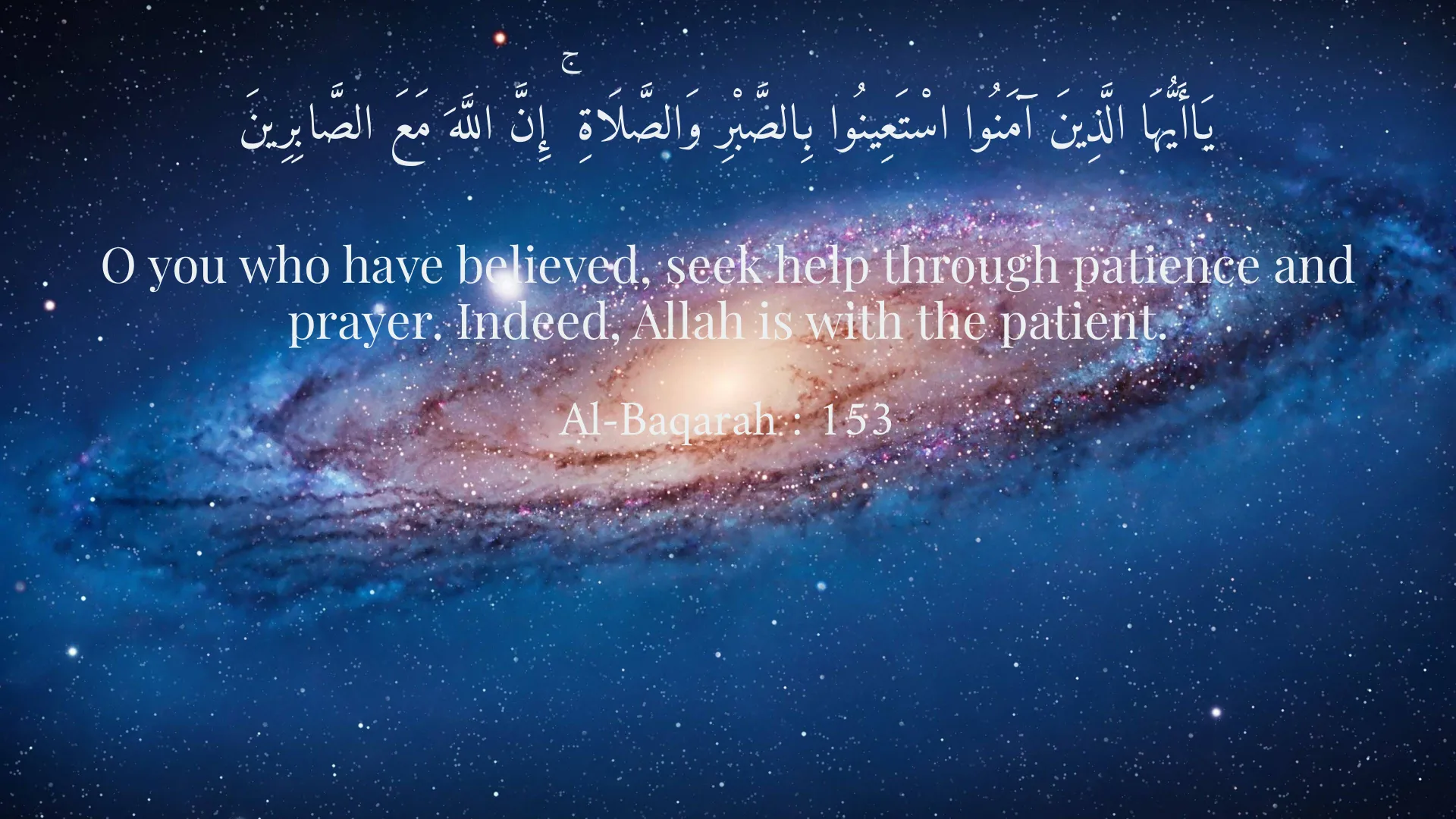Quranic Answer

In a world filled with uncertainty and challenges, the pursuit of peace often appears elusive. Yet, within the sacred pages of the Quran, we find profound guidance on how to attain a sense of tranquility amidst life's trials and tribulations. The teachings of Islam offer a pathway to peace through the remembrance of Allah, the importance of prayer, and the practice of patience. One of the most compelling verses that underscores this theme is found in Surah Al-Baqarah, verse 153: 'O you who have believed, seek help through patience and prayer. Indeed, Allah is with the patient.' This verse encapsulates two fundamental practices that can help individuals navigate through difficult times. Patience and prayer are not merely actions; they are powerful tools that can shape our response to adversity. When faced with challenges, the instinct may be to react impulsively or succumb to despair. However, by instilling patience within ourselves, we learn to pause and reflect rather than react hastily. Patience teaches us resilience and cultivates a mindset that is better equipped to handle setbacks. Moreover, the act of turning to prayer—whether it be the five daily prayers or spontaneous supplications—enables us to forge a direct connection with Allah. This connection brings solace to our troubled hearts, reminding us that we are not alone in our struggles. Indeed, the assurance that Allah is with the patient serves as a comforting balm during trying times. Furthermore, in Surah Ar-Ra'd, verse 28, Allah states: 'Unquestionably, by the remembrance of Allah hearts are assured.' This verse is a powerful testament to the impact of dhikr (remembrance of Allah) on our mental state. Remembrance serves as a grounding force, reminding us of the presence of the divine in our lives and the overarching plan that Allah has for each of us. In moments of anxiety or uncertainty, taking a moment to reflect, recite Quranic verses, or engage in the remembrance of Allah can lead to a profound sense of peace and reassurance. It is essential to recognize that achieving peace is not solely about spirituality. While maintaining our connection with Allah is crucial, it is also vital to incorporate practical ways to nurture our mental and spiritual well-being. Engaging in activities that promote calmness and mindfulness can significantly reduce stress levels. These activities may include worship, which creates a sense of purpose; reading, which can offer new perspectives and insights; or immersing oneself in nature, which fosters a connection to the beauty of creation. Nature, in particular, has a remarkable ability to soothe the mind and heal the spirit. This does not necessarily require an extensive hike; even a short walk in a park or garden can allow individuals to reflect and unwind. The serenity of green spaces often provides a mental escape from the hustle and bustle of daily life, allowing us to breathe and gather our thoughts. Such moments of tranquility can inspire gratitude, which is another key ingredient in achieving inner peace. In addition to these activities, self-care plays a pivotal role in maintaining balance in our lives. This could involve physical exercise, which releases endorphins and improves mood, or practices such as meditation and mindfulness that can help in cultivating a state of calm. By prioritizing self-care, individuals acknowledge their own needs and give themselves permission to step back and recharge. As we navigate life's challenges, it is equally imperative to surround ourselves with supportive communities. Allah has created us as social beings, and the relationships we build can profoundly impact our emotional and spiritual health. By engaging with family, friends, and community members who share our values and beliefs, we find camaraderie and support that can make challenges feel more manageable. Leveraging the strength of community can foster a sense of belonging, which is vital for our overall well-being. Moreover, it's essential to acknowledge the dynamic nature of life and the inevitability of facing trials and tribulations. The Quran teaches us that these challenges are not punishments but are rather opportunities for growth and reflection. In Surah Al-Ankabut, verse 2-3, it is stated: 'Do the people think that they will be left to say, ‘We believe’ and they will not be tried?' These verses remind us that trials are a part of the human experience, designed to test our faith and strengthen our character. Therefore, rather than fearing challenges, we must embrace them with patience and resilience, trusting that Allah's wisdom encompasses all. Each test we face is a chance to deepen our relationship with Allah and to reflect on our lives. Through a combination of faith, prayer, patience, and practical methods to nurture our mental health, we can cultivate a state of peace that transcends our external circumstances. In conclusion, the quest for peace amidst life's challenges is achievable through the teachings of the Quran and a commitment to personal growth. By embracing patience and prayer, remembering Allah, and incorporating calming activities into our lives, we foster an inner sanctuary that can withstand the storms of life. Maintaining faith that Allah is always with us, we find strength in supplication and tranquility that ultimately allows us to carry on with faith and hope. Thus, through the divine guidance contained in the Quran and proactive efforts to nurture our minds and spirits, we can navigate life's tumultuous waters with grace and peace.
Related Verses
يَاأَيُّهَا الَّذِينَ آمَنُوا اسْتَعِينُوا بِالصَّبْرِ وَالصَّلَاةِ ۚ إِنَّ اللَّهَ مَعَ الصَّابِرِينَ
O you who have believed, seek help through patience and prayer. Indeed, Allah is with the patient.
Al-Baqarah : 153
أَلَا بِذِكْرِ اللَّهِ تَطْمَئِنُّ الْقُلُوبُ
Unquestionably, by the remembrance of Allah hearts are assured.
Ar-Ra'd : 28
Short Story
Once upon a time, a man named Hassan faced numerous challenges in his life. He would remember Allah daily and seek His help. Hassan decided to dedicate some time each day to worship and prayer. Gradually, his problems diminished, and he found increased peace in his life. This experience showed him that by relying on Allah, he could overcome all difficulties.